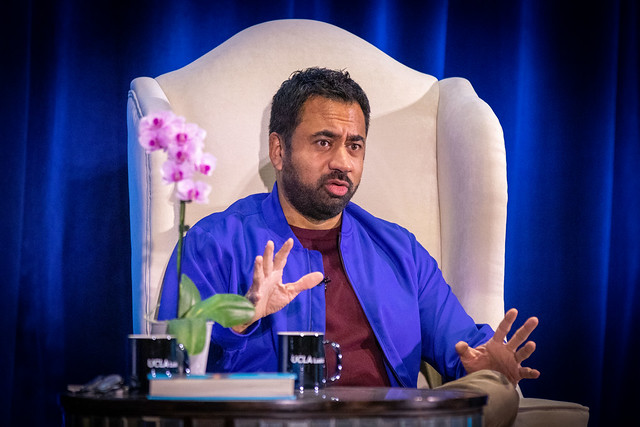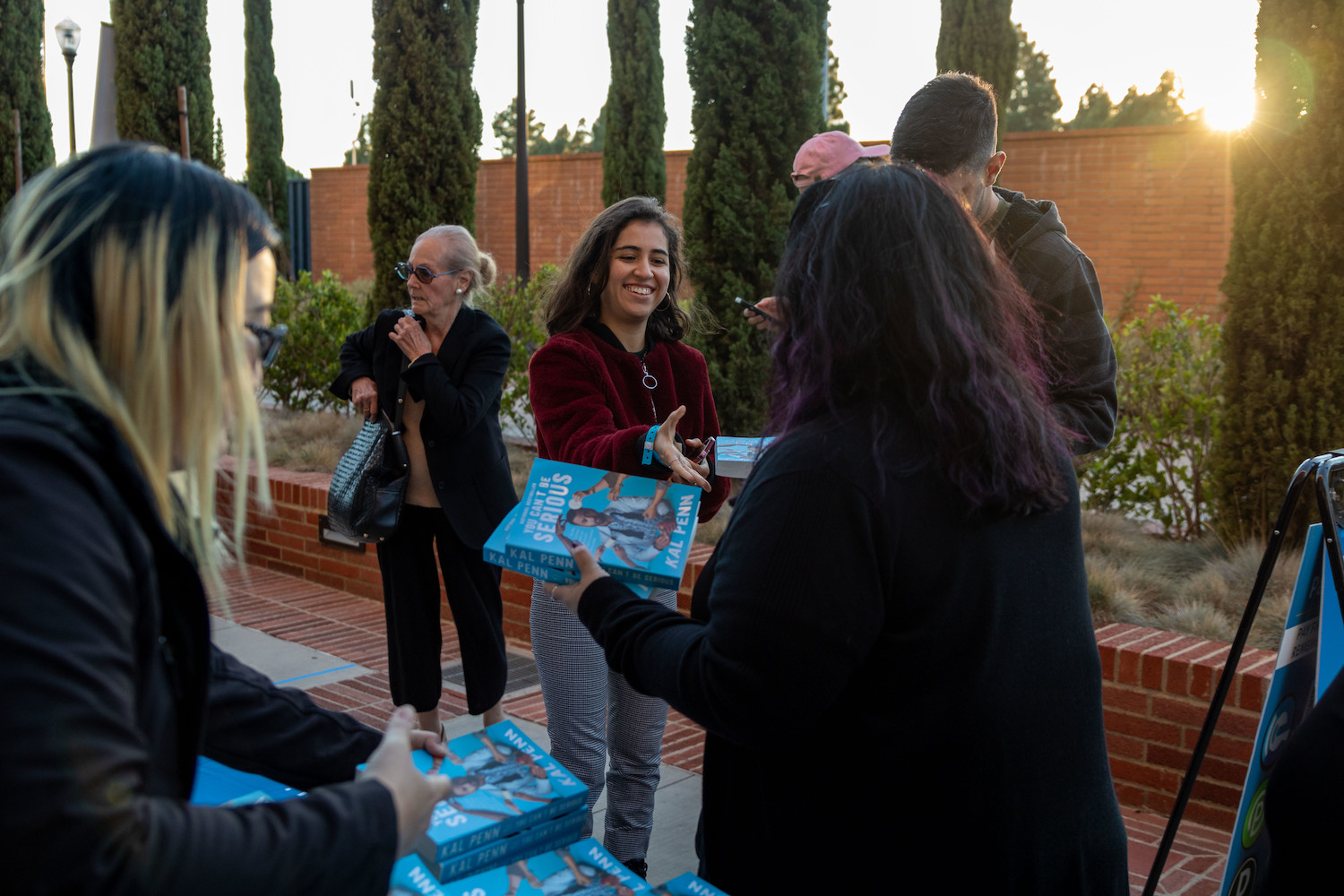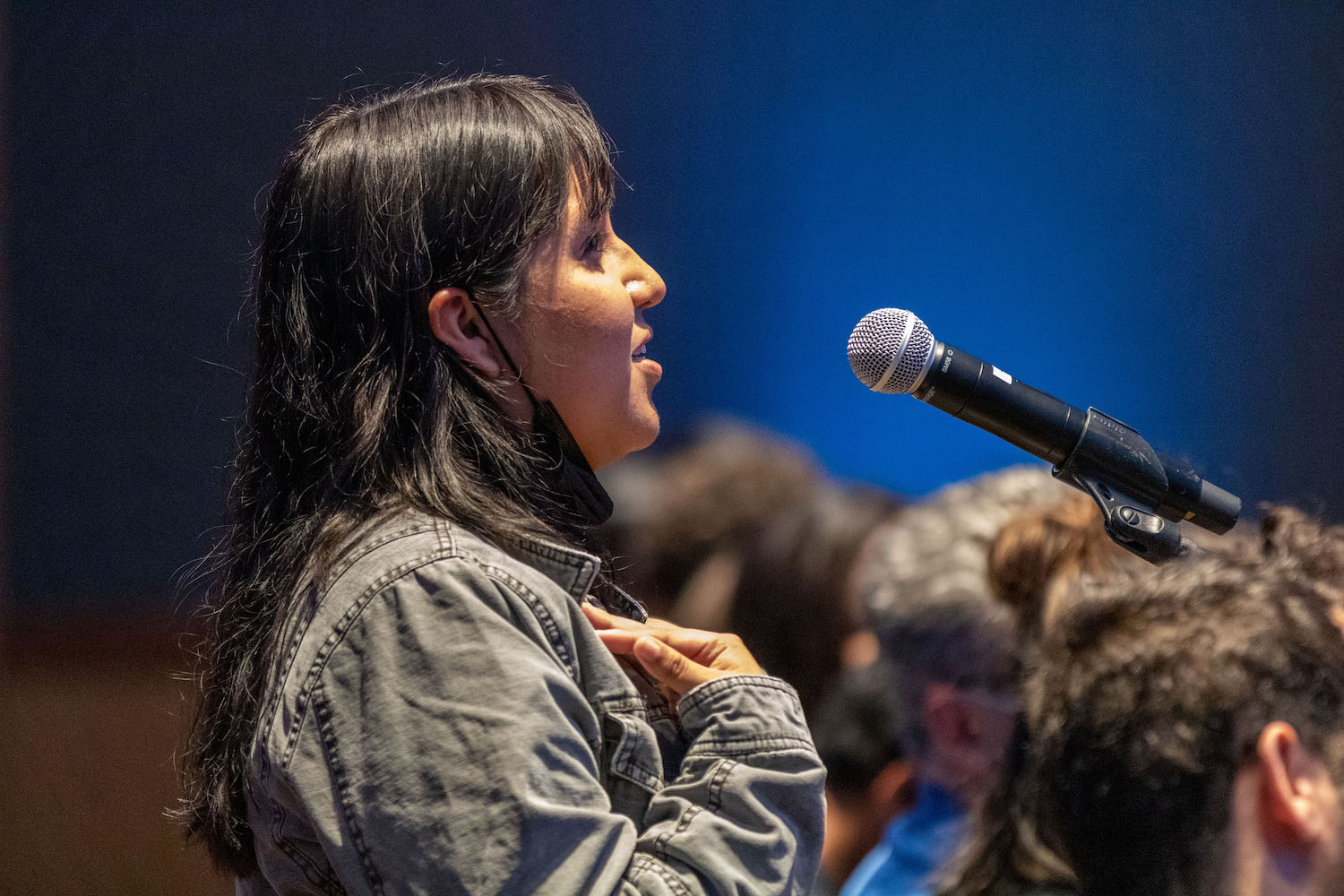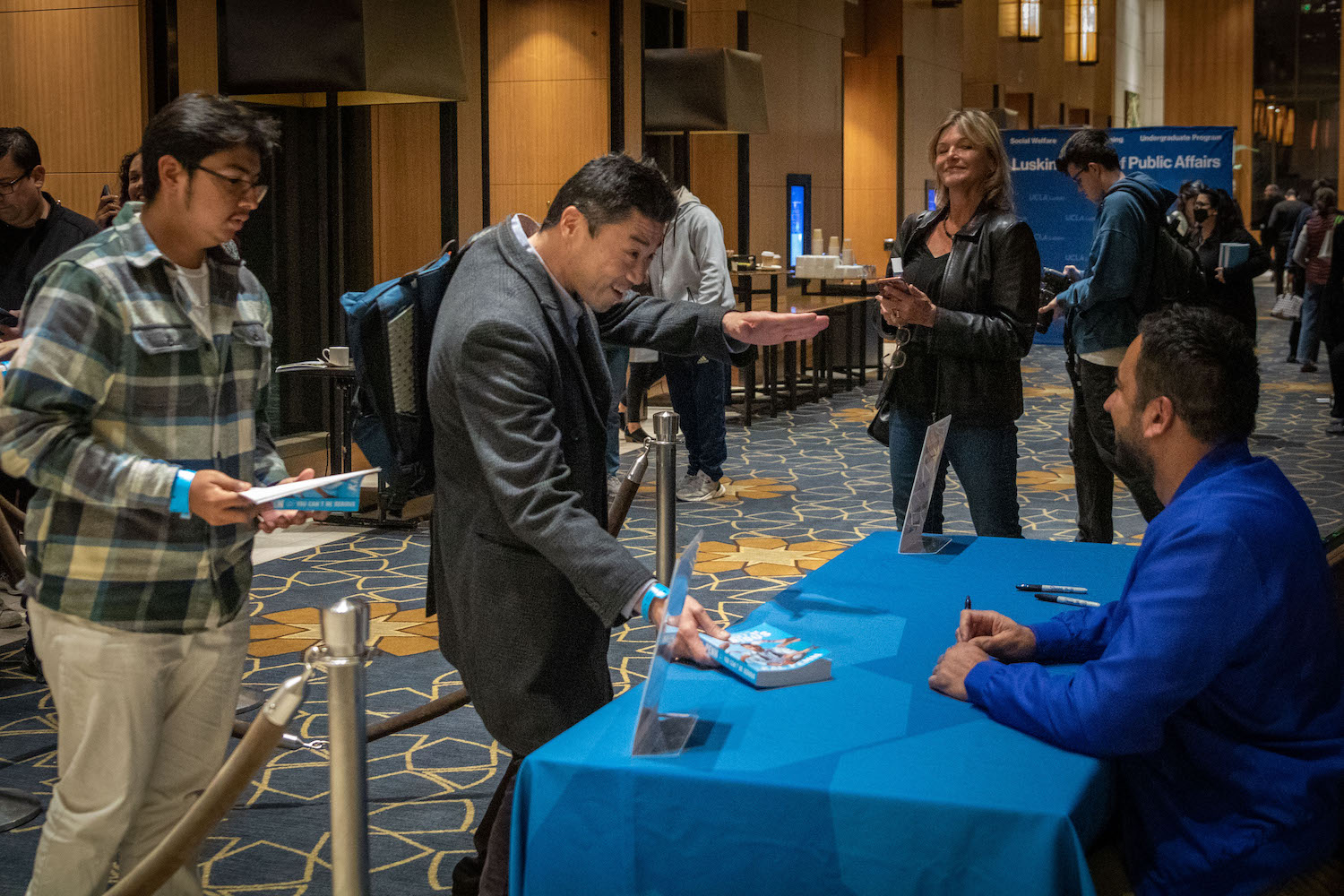By Mary Braswell
To understand the folly of viewing people through a one-dimensional lens, just look at Kal Penn’s resume.
The UCLA alumnus has played stoners, doctors and Santa Claus on the big and small screens. As part of the Obama White House, he mobilized voters, helped shape policy and advocated for the arts. Now, he’s added a new entry to his list of achievements: bestselling author.
Penn published his darkly funny memoir “You Can’t Be Serious” in 2021, and he returned to campus on Nov. 3 to share tales from his circuitous life journey as part of the UCLA Meyer and Renee Luskin Lecture Series.
Penn, a familiar face to viewers of “House,” “Designated Survivor” and the “Harold & Kumar” stoner movie franchise, was moved to write the book during the COVID-19 pandemic, when many people were re-examining their career choices and life priorities.
“Maybe I do have a story to tell,” he realized. “Maybe now is the time to share how you can have the blessing and privilege of working in two totally different careers.”
His story begins in New Jersey, where he grew up as the child of Indian immigrants — two scientists who fretted about their son’s desire to make a living as an actor. His career arc started on a middle school stage, when Penn brought down the house as the Tin Man in “The Wiz,” even breaking through to boys who had bullied the drama kids.
“I just thought, wow, what an incredible experience, that something as simple as a school play and a joke that was improvised made somebody change their minds,” he remembered.
“There’s a magic to this in terms of having a captive audience and being able to introduce them to characters and perceptions that are different from theirs. And that really motivated me to want to be an actor.”
After graduating from UCLA in 2000 with degrees in sociology and theater, film and television, Penn tried to make his way in an entertainment industry that, despite its broad reputation as a bastion of liberal values, clung to all forms of racism.
In some roles that he auditioned for, a brown face and Indian accent were the top criteria, not the talent, humor and heart needed to develop a believable character.
Penn recalled his attempts to persuade a sitcom director that the character he was playing would be much funnier if he didn’t descend into South Asian stereotypes — and that it would mean a lot to his young cousins, fans of the show.
“‘This is not a conversation we’re having,’” Penn said he was told. “‘Your little cousins should feel lucky that you’re allowed to be on TV to begin with. And so should you.’”
Despite such tales of entrenched bigotry, Penn assured the UCLA audience that change, though slow, can definitely be measured. Sometimes it’s for business reasons, he said, citing the diversity of programming in the era of streaming platforms, which are funded through subscriptions rather than ad revenues that have a chilling effect on risk-taking.
Penn jumped from Hollywood to national politics during the Obama administration, when he served as White House liaison to young Americans, Asian Americans and the arts community and worked on policy matters including health care, immigration and LGBTQ rights. He was a national co-chair for the Obama/Biden reelection campaign in 2012 and served on the President’s Committee for the Arts and Humanities.
With that insider perspective on politics and governance, Penn weighed in on the current state of civil discourse in America. Speaking days before the contentious midterm elections, he acknowledged, “It is a dark time.”
One member of the audience, a student pursuing a master of public policy, sought Penn’s advice to young people called to public service but experiencing frustration and fear that they won’t be able to make a difference.
Don’t lose sight of important gains that have already been made, Penn counseled.
“When I do university lectures, a lot of times the tone of certain questions is like, ‘I can’t believe you worked for a moderate like Barack Obama.’ To me, what a great benchmark of progress, because at the time he was a progressive president.”
The notion that a generation of Americans now takes for granted the passage of the Affordable Care Act, repeal of “Don’t Ask, Don’t Tell” and protections extended to DACA students is a sure sign of progress, Penn said. Just this year, a landmark climate bill passed “because so many young people were pushing the White House to do something.”
During the on-stage conversation moderated by Jim Newton, editor of UCLA’s policy-oriented magazine Blueprint, more nuances of Penn’s humanness came through. Many of his loved ones are private by nature, so not until his memoir was published did some readers learn that Penn is gay and engaged to his partner, Josh. His proudest accomplishment is earning a graduate certificate in international security from Stanford University, and he aspires to one day serve his country as a U.S. ambassador. And in answer to a question from the audience, Penn revealed that his favorite soup is matzo ball.
Penn’s appearance was part of the UCLA Luskin School of Public Affairs’ signature Luskin Lecture Series, aimed at igniting dialogue on the most pressing policy challenges of our time.
Following the conversation, audience members snaked around the Centennial Ballroom at UCLA’s Luskin Conference Center, waiting to speak with Penn as he signed copies of his autobiography, complimentary to those who had registered to attend. They included students from the worlds of theater, film, global studies and public affairs, and Penn had a universal charge for each of them:
“Complacency is the greatest danger. … Just because things have progressed doesn’t mean they’re not going to slide back in any way, both in terms of diversity and career but also in terms of democracy.
“When you’re complacent, the other side will absolutely win.”
View photos from the lecture on Flickr.






 The three-year study, funded by the Houston-based philanthropy Arnold Ventures, aims to build a base of knowledge that supports safe and equitable sentencing and “second-look” policies for people sentenced to life for offenses committed before they were 18 years old. Many have spent years or decades behind bars.
The three-year study, funded by the Houston-based philanthropy Arnold Ventures, aims to build a base of knowledge that supports safe and equitable sentencing and “second-look” policies for people sentenced to life for offenses committed before they were 18 years old. Many have spent years or decades behind bars.